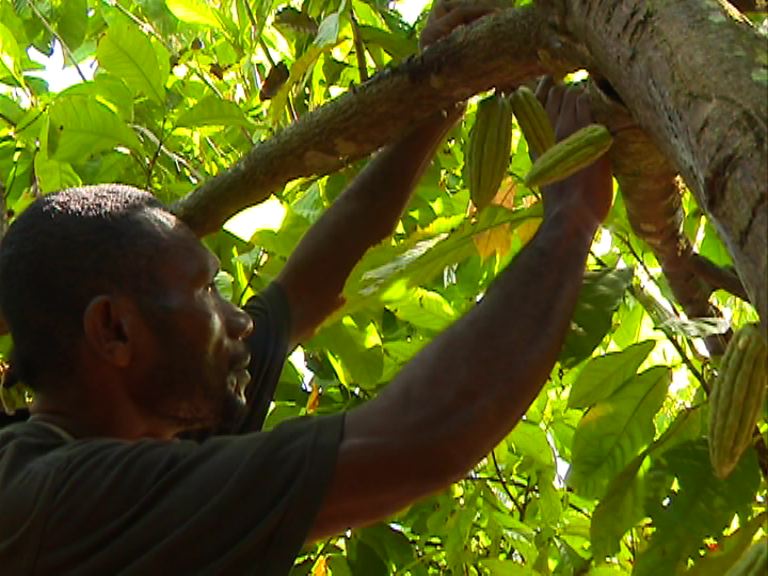The Morobe Provincial Government will work with multi-national cocoa exporters who are willing to develop downstream processing within the province in the future.
Morobe Governor, Kelly Naru, says local exporters who have been in the country and within the province for a long time will be given priority by the provincial administration. However, with that in mind, the people are open to make their own choices about exporters.
“Once the roads, bridges, electricity, water supply and other infrastructures are improved, we are looking towards downstream processing and international exporters are welcomed to help.
“Those exporters who have been in the country are always welcomed to work with the provincial administration,” says Governor Naru.
The Morobe Provincial Government has made commitments to the cocoa industry, but work is slow because of a lack of funds.
The support has come because Morobe has recently found its footing in the cocoa industry, with the province sitting just below leaders East New Britain and East Sepik.
Last year, Wals Cocoa Cooperative from the Lower Watut area won a prestigious Cocoa of Excellence Award in Paris.
The Morobe provincial administration has been supporting the cooperative and its endeavors.
“I have pledged K20,000 to the cooperative and a vehicle, but it hasn’t been forthcoming because of funding constraints,” says Naru.
Francis Anton, Wals Cocoa Cooperative Chairman, said yesterday that more work in training farmers needs to be done.
“We have 33 farmers, but there are many that want to join us,” says Anton.
The prospects of cocoa and the developments of cocoa into the future has enticed competition between local exporters and those coming from abroad. This is something welcomed by Naru.
“The people of Wampar made K2 million in cocoa exports last year,” says Governor Naru.
Lower Watut is part of the Wampar Local Level Government in the Huon District, and because of their success local exporters such as Agmark are wary of international exporters being attracted to claim a stake in the PNG cocoa industry through promoting lucrative overseas markets and ideal prices to local farmers.
But according to Agmark, showing a strong representation of local exporters proves that international exporters are not needed, because local exporters can more than do the job.
“There is a cocoa board to regulate,” says NGIP Agmark Export Manager, James Narokai.
The surge of interest in the cocoa industry from both local and international exporters is purely business, and because of developments like the cocoa sustainability program in the Watut area things look to only be getting better for those involved in the industry.


